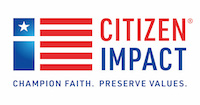Legislative Preview
BY SARAH FAY CAMPBELL
THE NEWNAN TIMES-HERALD
(Editor’s Note: This is the second of three articles focusing on the upcoming session of the Georgia Legislature from the point of view of Coweta’s legislative delegation. Today we feature the view from State Rep. Billy Horne, R-Sharpsburg.)
•••
State Rep. Billy Horne, R-Sharpsburg, hopes the 2012 session of the Georgia General Assembly will be relatively quiet, but he’s not expecting it.
“What I would really like to see is us just go up there and get a budget done and leave,” Horne said. “But that is totally unrealistic.”
Approving budgets — the supplemental budget for the remainder of the fiscal year and the budget for the next fiscal year — is the only thing the legislature has to do each session. But, of course, there are always other issues to consider.
The 2012 session is the second of the two-year cycle, which means any bills that were introduced but not defeated last year are still in play. Lawmakers can basically pick them up where they left off.
Horne said the issue that he is really going to take a hard look at this year is tax reform.
Various proposed changes to the state’s tax structure were issues last year, following the recommendations of the Special Council on Tax Reform and Fairness for Georgians. Many of the council’s recommendations were controversial and unpopular — especially reinstating the sales tax on groceries.
A bill was put together that included some of the less controversial recommendations, including charging sales tax on automobile repair services, and “casual” person-to-person sales of used cars.
That bill never made it to a vote.
And it probably never will.
“My understanding is that the tax reform bill we had last year… is not going to come back in its current form,” Horne said on Tuesday.
“That bill is not going to come back. But what we have been told is there are certain parts of it that are going to be done individually.”
One part in particular that people have been talking about is the removal of the sales tax on energy used in manufacturing, Horne said. “That is probably going to be a good bill.”
“I’m not exactly sure what other parts of the tax council proposal are going to come through in piecemeal form,” Horne said. “I’ve heard rumors.”
He said he will be paying close attention to the issue and wants to make sure that “whatever comes through is not going to be a net tax increase for anybody.”
Horne said he is in favor of moving toward more consumption taxes, however. “I don’t like taxing people’s income. I don’t like taxing people’s labor,” Horne said. “That is penalizing achievement and I don’t really like that very much.”
Other things discussed by the council included raising the sales tax rate while lowering the income tax rate.
Something like that is “going to affect different people in different ways,” Horne said. “I just hope the citizens will be paying attention to all that kind of stuff. It will just be good to have their input.”
As for the budget, even though state tax revenue collections have increased, year-over-year, for 16 straight months, Gov. Nathan Deal is asking state departments to present budgets with cuts, Horne said.
Horne said much of the state’s increased income will be put toward the “rainy day reserve” fund, which has been nearly drained over the past few years.
However, there are no plans for any additional furlough days for state employees, Horne said.
The governor “has requested a reduced budget from all of the departments. I don’t know if that is how it is going to work out.”
Two other issues expected to come to the forefront are so-called “criminal justice reform,” and charter school legislation.
The Georgia Department of Corrections is one of the state’s most expensive departments. “What they are calling criminal justice reform is just another way of saying we are going to look at how we sentence different criminals for different kinds of crimes,” Horne said. “That is one of those things where I’m going to have to take a look at the bill and see what it says. It is all in an effort to try to reduce the amount of money that corrections is spending.”
New charter school legislation is likely because the courts struck down the state’s charter schools commission, which allowed charter schools that had been turned down by their local school boards to be approved by the state — and to get, in a roundabout way, a piece of the local per-student funding.
Horne said another action that brought the issue to the forefront was the Fulton County School Board’s decision not to renew the charter for the Fulton Science Academy. The school was very successful, Horne said. “My understanding is it came up for renewal and Fulton County declined to renew it. When that happened, it raised the attention of a lot of legislators, especially those in Fulton.”
“I would expect you will see some sort of legislation on charter schools. I don’t know what it is because I haven’t seen it yet,” Horne said.
“I’m pro charter schools. I think everybody knows that,” Horne said. “If parents believe their child is going to function better in a charter school, I want to make it easier for them.”
“Other than that, I haven’t really heard much. We’ll see, once the session gets started,” Horne said. “It is an election year. Most people will say… there won’t be much in an election year. But you never know.”
© 2011 The Newnan Times-Herald Inc., Newnan, Georgia. Any unauthorized use, copying or mirroring is prohibited.

Recent Comments